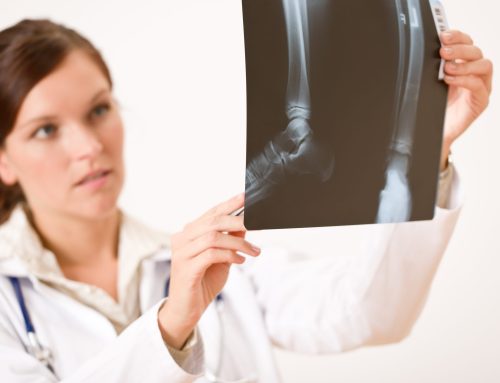
In today's fast-paced world, where health often takes a backseat, it's crucial to spotlight the intricate ways our bodies react to what we consume. A condition not widely discussed but significantly impactful on one's quality of life is Celiac Disease, an autoimmune disorder triggered by the ingestion of gluten in genetically predisposed individuals.
Beyond the immediate gastrointestinal discomfort and nutrient malabsorption it causes, celiac disease harbours a less visible but equally concerning consequence: compromised bone health. This blog delves into the complex relationship between gluten intolerance and bone density, uncovering how this silent aspect of celiac disease can affect your life and how innovative solutions like the Marodyne LiV device can offer support.
The Hidden Battle: Celiac Disease and Your Bones
Celiac Disease is more than just a dietary restriction; it's an immune reaction to eating gluten, a protein found in wheat, barley, and rye. When individuals with celiac disease consume gluten, their body mounts an immune response that attacks the small intestine, damaging the villi, tiny fingerlike projections lining the small intestine that promote nutrient absorption. This malabsorption plays a critical role in the health and strength of bones.
The Gluten-Bone Density Connection
One of the lesser-known effects of celiac disease is its impact on bone health. Calcium and vitamin D malabsorption, crucial for bone formation and maintenance, can decrease bone density, making bones more fragile and susceptible to fractures. This condition, known as osteoporosis, is a significant concern for those with celiac disease, as it increases the risk of bone injuries, even from minor bumps or falls.
The challenge with celiac disease and its impact on bone health lies in its silent progression. Osteoporosis does not present immediate symptoms, making it difficult to detect until a bone is fractured. For individuals with celiac disease, regular monitoring of bone density is critical to prevent severe complications. However, the path to maintaining bone health is not solely dependent on diet and supplements; it involves a holistic approach to stimulating and strengthening bones from within.
Beyond Nutrition: A Holistic Approach to Bone Health
While a gluten-free diet is paramount for managing celiac disease, it's often not enough to fully counteract the effects on bone density. Physical activity plays a crucial role in bone health, stimulating bone formation and improving muscle strength. However, for those with celiac disease, traditional high-impact exercises might be challenging or even risky, especially in the presence of osteoporosis.
Innovating Health: The Marodyne LiV Solution
As we navigate the complexities of maintaining bone health amidst the challenges of celiac disease, the advent of technology offers new hope. Marodyne LiV emerges as a beacon of innovation, providing a safe, patent-pending, scientifically established method to naturally and gently improve muscle strength, function, and circulation. This low-vibration device is designed to stimulate muscles and bones without the stress of high-impact exercises, making it an ideal solution for individuals seeking to enhance their bone density and overall well-being.
The Science Behind the Solution
Marodyne LiV's technology is grounded in scientific research, utilizing low-intensity vibrations to stimulate bone and muscle cells. This stimulation encourages the production of cells responsible for bone formation, enhancing bone density and strength. Furthermore, it improves muscle function and circulation, supporting the body's overall health and resilience. With regular use, Marodyne LiV offers a proactive approach to combating the bone density challenges faced by individuals with celiac disease, providing a path towards improved health without the risk of injury.
A Path to Empowerment
For those living with celiac disease, the health journey is multifaceted, involving dietary management, regular health monitoring, and innovative technological support. Marodyne LiV represents more than just a device; it symbolizes empowerment, offering individuals the tools to actively improve their bone health and quality of life. Its gentle, natural approach to stimulating bone and muscle strength is a testament to the possibilities of modern science and technology in enhancing health outcomes.
The intersection of Celiac Disease and bone health is a complex challenge, yet it also presents an opportunity for growth and improvement. Understanding the impact of gluten intolerance on bone density is the first step toward proactive health management. Individuals with Celiac Disease can navigate the path to stronger bones and a healthier life with dietary diligence, regular monitoring, and the support of groundbreaking technologies like Marodyne LiV.
In a world where health often takes a backseat, innovations like Marodyne LiV remind us of the power of technology to transform lives. By embracing this safe, scientifically established approach to improving muscle strength, function, and circulation, we can open doors to a future where Celiac Disease and its impact on bone health are no longer silent threats but challenges met with effective, empowering solutions.
Join us in exploring the possibilities of Marodyne LiV and take the first step towards a stronger, healthier future where your well-being is not just managed but enhanced. Contact us to learn more about the device and how it can help your health journey.
Did you know that celiac disease could have possible implications on the health of your bones? What other recommendations would you make to those with a celiac disease diagnosis? Share your thoughts with our readers in the comments below.




Leave A Comment